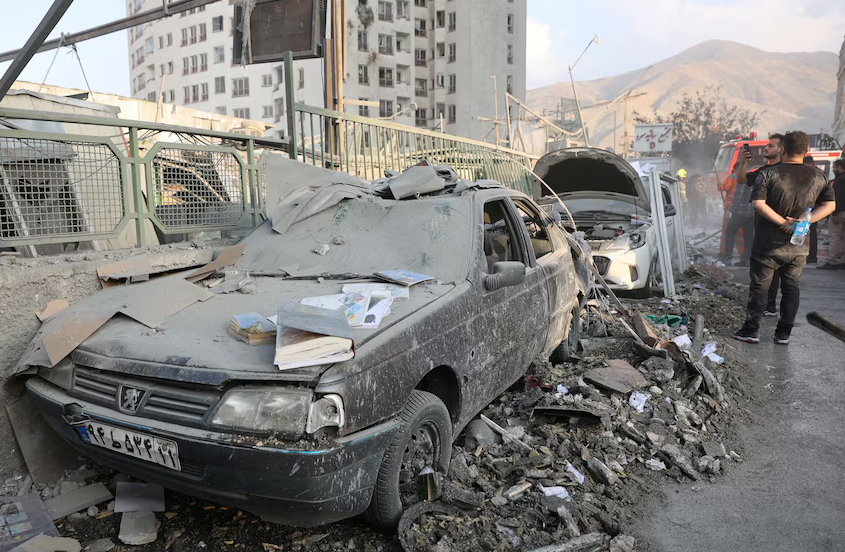Gambiaj.com – (JERUSALEM/BERLIN) – Israel’s military operation inside Iranian territory has taken a dramatic turn, with new revelations indicating the use of Ukraine-style tactics to strike deep into the heart of Iran’s military infrastructure.
According to Israeli newspaper Haaretz, citing a military source, the Mossad established a covert drone base inside Iran, months in advance, smuggling in explosive-laden drones that were later activated during the most recent Israeli strike.
The tactic mirrors Ukraine’s successful drone strike strategy against Moscow, highlighting the evolving nature of asymmetrical warfare.
The drones were reportedly launched toward surface-to-surface missile launchers at a base near Tehran, deployed by Israeli commandos in open zones close to Iran’s air defense systems. These systems were only triggered at the start of Israel’s aerial assault, rendering Iranian defenses slow to respond.
Israeli outlet Ynet reports that the entire chain of command of Iran’s air force was wiped out in the fifth wave of Israeli airstrikes at dawn. The country’s defense minister, Yoav Gallant, was briefed on the destruction of the Iranian air force headquarters and the deaths of all top commanders.
A preliminary assessment of the operation’s outcomes is expected soon from Defense Minister Israel Katz.
In response to the decapitation strike, Iran’s Supreme Leader, Ayatollah Ali Khamenei, swiftly appointed Ahmad Vahidi as interim commander of the Islamic Revolutionary Guard Corps (IRGC), following the death of Hossein Salami. Vahidi, 67, is a former defense and interior minister and a founding leader of the elite Quds Force.
His appointment is likely to raise international concerns: Vahidi is subject to an Interpol arrest warrant at Argentina’s request for his alleged role in the 1994 bombing of a Jewish center in Buenos Aires.
To stabilize military leadership further, Khamenei also named Admiral Amir Habibollah Sayari as the interim commander of Iran’s armed forces, replacing the late Major General Mohammad Bagheri. Sayari, 70, previously headed Iran’s navy and is seen as a veteran military hand.
The international community has voiced increasing concern over the spiraling conflict. Speaking before the International Atomic Energy Agency (IAEA) Board of Governors in Vienna, IAEA Director General Rafael Grossi warned both parties against further escalation and emphasized that “nuclear facilities must never be targeted, under any circumstances,” citing the risk to human life and the environment.
Meanwhile, Der Spiegel revealed that Germany, alongside the United States, was forewarned of the Israeli strike. Israeli Prime Minister Benjamin Netanyahu reportedly informed German Chancellor Friedrich Merz during a phone call around 2:30 a.m. on Friday.
Later that morning, Merz issued a cautious statement urging de-escalation to prevent further regional destabilization while reiterating Israel’s right to self-defense.
So far, the OIC has not issued an official response to the latest Israeli actions on Iranian soil.
This marks a critical juncture in the Israel-Iran standoff, with each side hardening positions and the threat of wider conflict looming large across the Middle East.










